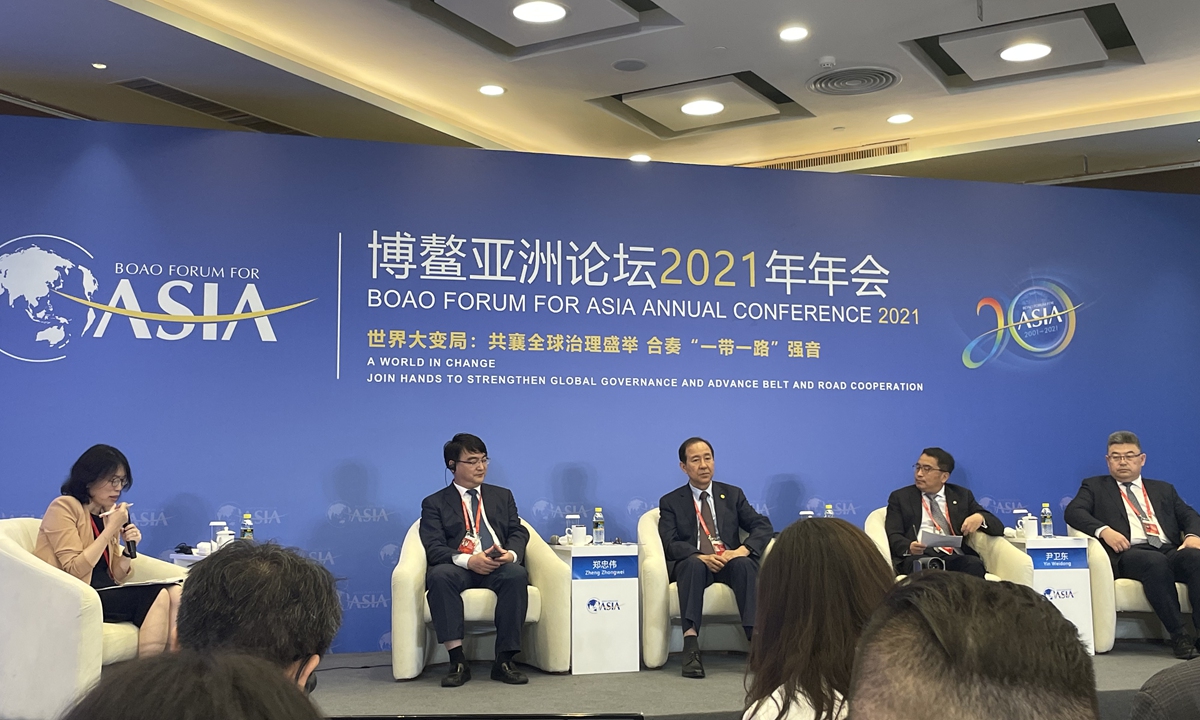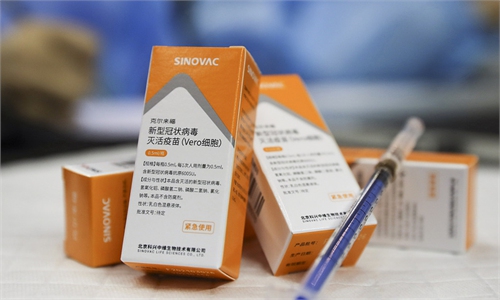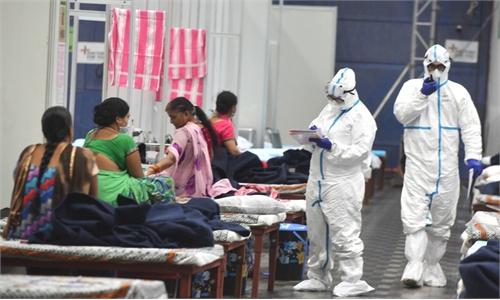Chinese COVID-19 vaccine producers mull technology transfer to tackle global vaccine inequities
Sinovac daily production exceeds 6 million doses: CEO

Officials, experts and company CEOs talk about COVID-19 vaccine production and supply at a seminar during the 2021 Boao Forum for Asia held in Boao, South China's Hainan Province on Tuesday. Photo: Shen Weiduo/GT
Chinese COVID-19 vaccine producers such as Sinovac and CanSinoBIO are mulling technology transfers to other countries to help address the global vaccine inequity issue, company executives said at the 2021 Boao Forum for Asia (BFA) on Tuesday.
"China plans to produce over 3 billion COVID-19 vaccines this year. The capacity can reach around 5 billion doses this year," Zheng Zhongwei, director of the Development Center for Medical Science and Technology of the National Health Commission (NHC), said at a session on COVID-19 on Tuesday during the BFA in South China's Hainan Province, noting that China has taken into consideration both domestic and global demand from the beginning of the vaccine development process.
After production is properly established in the second half of this year, China will provide doses to more people in need through multilateral and bilateral measures, Zhong said.
China is accelerating its domestic vaccination program and as of Monday, more than 195 million doses had been administered across China, according to the NHC.
Some places in China have been reported to face a vaccine shortage as some people could not get their second shots in time.
The situation would be eased by June as production would increase, Zheng told the Global Times on Tuesday.
According to Zheng, about 5 billion people in the world outside China are suffering from the epidemic but have no access to vaccines, while another 1.2 billion people in places where the epidemic is serious - including the US, UK and Europe - do have vaccines.
Globally, about 800 million doses had been administered as of Monday, about 80 percent of which were in middle- and upper-income areas, said Qiao Jianrong, coordinator of the health systems and health security team at the WHO in Beijing, who hosted the Tuesday vaccine session.
China has demonstrated that even without vaccines, the mechanism of government-society cooperation can successfully get the epidemic under control. The WHO Western Pacific region, where China is located, accounts for one-quarter of the world's population but has only reported 1.5 percent of the global COVID-19 infections and 1.1 percent of the deaths, Qiao said.
But as vaccines are widely viewed as game changers in the pandemic, inequitable access is still a huge challenge for the world to overcome the pandemic, Qiao noted.
To increase global vaccine supply, especially to tackle the problems of shortages and low levels of accessibility in some developing countries and regions, Chinese vaccine producers said they would expand cooperation with these places in transferring technology and helping them build packaging lines.
Yin Weidong, CEO of Chinese vaccine producer Sinovac Biotech, said at the Tuesday session that the company will try to realize technology transfer to 10 countries as soon as possible.
Yu Xuefeng, chairman and CEO of another Chinese vaccine producer CanSinoBIO, said the company is considering technology transfer to some qualified countries like Mexico and Pakistan, so that countries in South America and Central Asia can get vaccines more conveniently.
Chinese producers have been exporting semi-finished vaccine products to foreign countries such as Brazil and Mexico to allow them to package the final products in local factories to increase production efficiency.
According to Yin, Sinovac has produced 260 million doses of COVID-19 vaccines, of which 60 percent were provided to other countries. At least 160 million doses have been administered, proving the safety of the vaccine.
Sinovac's daily production exceeds 6 million doses, according to Yin.




